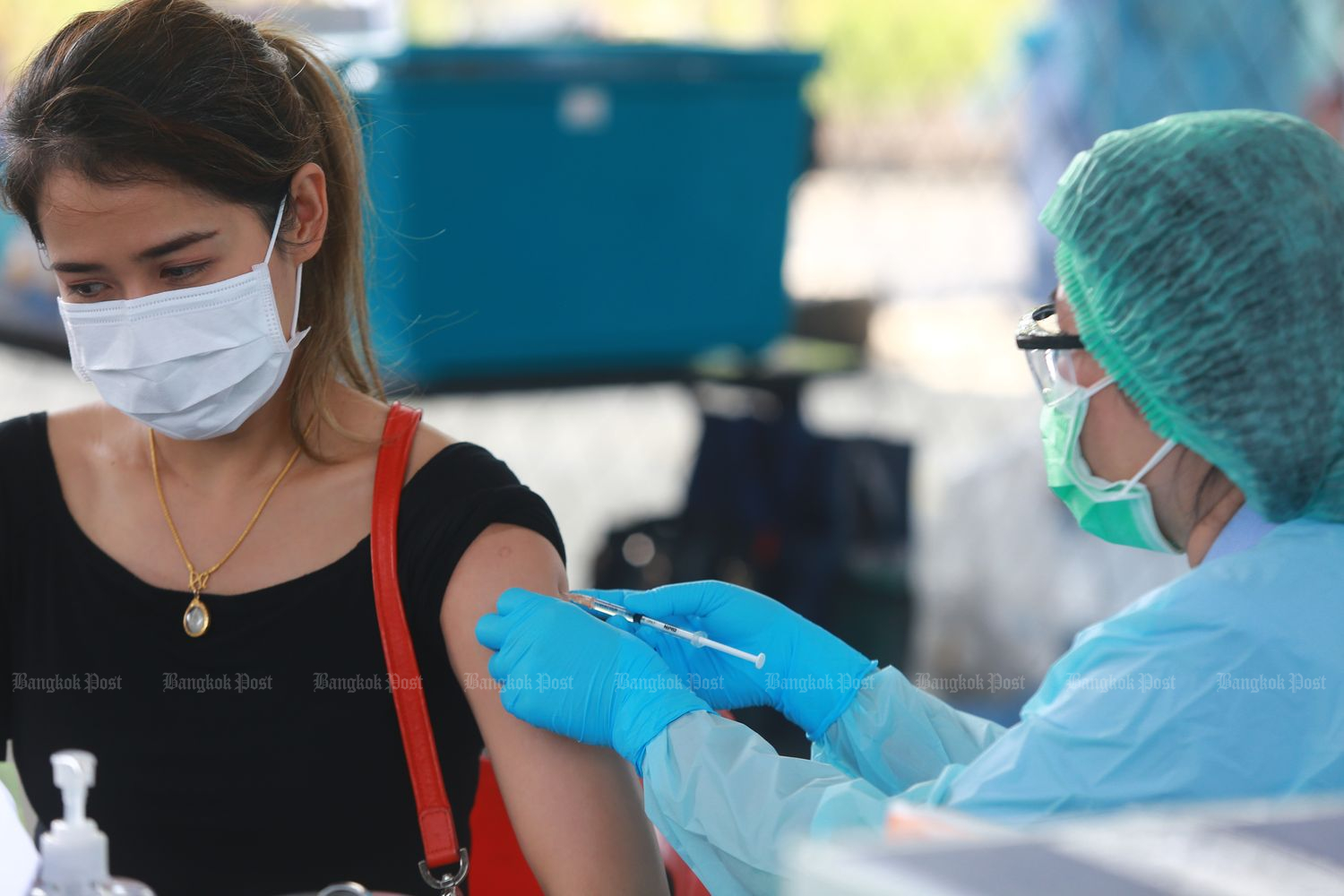
Authorities insist they have never stopped the private sector from importing Covid-19 vaccines as criticism persists, even after they confirmed that up to 10 million doses could be ordered.
Public Health Minister Anutin Charnvirakul said on Saturday that the government fully supported plans by the private sector to buy “alternative vaccines”.
Only two companies — Sinovac Biotech and Oxford/AstraZeneca (AZ) — are included in the government’s procurement plans for its free jab programme over the next two years. Another one million doses of CoronaVac from Sinovac arrived in the country on Saturday.
Private hospitals are anticipating substantial demand from some segments of the population who are willing to pay rather than having to wait months in the queue for free shots. They have been looking for ways to order other vaccines, especially those made by Pfizer, Moderna, and Johnson & Johnson (J&J).
Mr Anutin said his ministry had in fact been looking for more choices. “If the private sector can deal with Pfizer, it can register with the FDA [Food and Drug Administration],” he said on Saturday.
He added that his ministry had been in talks with other manufacturers but they all set minimum orders and specific delivery times that didn’t suit Thailand.
“The problem is we don’t need that many and the delivery time is too late,” he said, without revealing the specifics.
Thailand has approved vaccines from three manufacturers. In addition to the two already ordered, J&J was also registered, he said.
“We contacted J&J but were told the vaccine could be delivered by the end of this year at the earliest, which coincides with [the delivery of] AstraZeneca. We won’t be needing it that much by then,” said Mr Anutin.
The minister explained that the government’s procurement plan also took into account the mutation factor.
“We won’t buy in large numbers — we will only buy as many as we can administer — to keep the inventory at a minimum.”
He added it was imperative that the country had a “plan B” in case the virus mutated further.
“We don’t want to be sitting on a huge pile of useless vaccines that can’t keep up with the virus,” he said.
His comments followed criticism about the slow pace of vaccinations, especially in light of the arrival of a third wave last week in which hundreds of people have been infected from entertainment venues in Bangkok.
As of Saturday, Thailand ranked 124th out of 154 countries in the percentage of adults (0.4%) receiving a first vaccine dose, according to data compiled by The Economist.
Mr Anutin was not the first to try to quell public frustration about the slow pace of inoculation and the perception that the government had been reluctant to allow Thais to obtain vaccines from other manufacturers.
AZ has contracted Siam Bioscience, a local company owned by His Majesty the King, to produce its vaccine for Thailand and the rest of Asean. The local facility is scheduled to deliver the first lot for local use in June.
Sinovac Biotech, meanwhile, is 15% owned by the Thailand-based conglomerate Charoen Pokphand group.
On Saturday, Prime Minister Prayut Chan-o-cha said local production of the vaccine by Siam Bioscience was progressing satisfactorily.
“Everything has gone according to plan. It’s now in the process of quality checking at laboratories in the United Kingdom and the United States,” he said.
As well, an additional 1 million doses of Sinovac vaccines arrived at Suvarnabhumi Airport on Saturday and they would be distributed nationwide as soon as possible, Mr Anutin said.
The shipment was the third lot, after 200,000 doses in late February and 800,000 the following month, bringing the total from the Chinese supplier to 2 million.
Last week, Dr Nakorn Premsri, director of the National Vaccine Institute, clarified “misunderstandings” about vaccine imports.
He said all vaccines needed to be registered before they could be used. Some companies, including Pfizer, AZ and J&J, have offices in Thailand that can act on their behalf.
“If their representatives here do not apply to register them, no one can do it for them,” he said.
Other manufacturers with no local subsidiaries must appoint authorised representatives and submit documents for registration.
He cited Sinovac as an example, saying the Chinese company had the Government Pharmaceutical Organization represent it. Moderna has asked Zuellig Pharma in Thailand to act on its behalf.
“Companies seeking vaccines from other manufacturers must contact them directly and the government has never blocked such a move,” he said.
Some companies, he said, sold directly to the government, including Pfizer, AZ and J&J. As the vaccines are new for emergency use only, they all want the government to accept the “no-fault compensation” scheme, which prevents suits for civil damages in cases of severe side effects.
Discussing supplies, Dr Nakorn said most well-known vaccines could be delivered in the fourth quarter of this year at the earliest and only in limited numbers. The exceptions are Sinovac, which has been gradually delivering since February, and AZ which will deliver in June.
He also criticised private hospitals, which have banded together to demand liberalisation of vaccine rules so that they can start treating the many patients who have been asking to be inoculated.
“We already met with them and they understood,” he said. “However, they did not admit they had been wrong in thinking they could buy [vaccines] from anywhere but the government prohibited them from doing so. This criticism persists.”
He also mentioned a case in which a hospital advertised it would accept bookings for a certain vaccine.
“It broke the FDA law because it advertised what it didn’t have in hand,” he said. “After it was fined, it remained silent, further fuelling the misunderstanding that the government has been an obstacle.”
